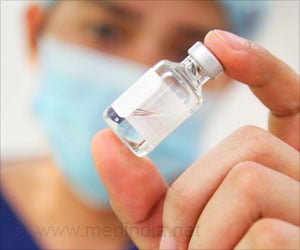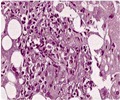When are antibiotics given for neutropenia to cancer patients? Delaying antibiotic treatment from the time after fever detection does not reduce survival chances.

Why do Cancer Patients get Neutropenia?
Neutropenia means low levels of white blood cells called neutrophils, which fight infection—develops in more than 80% of patients who receive chemotherapy for blood cancer. It occurs because chemotherapy destroys neutrophils along with tumor cells.‘The benchmark for how quickly antibiotics need to be administered after neutropenic fever for hospitalized patients is yet to be determined.’





A fever in a patient with neutropenia is considered a medical emergency. The fever signals a severe decrease in neutrophils and therefore a compromised ability of the immune system to ward off infections.Neutropenic fever is defined as a temperature of at least 101°, or a sustained temperature of at least 100.4° for an hour or more.
The Infectious Disease Society of America and the American Society of Clinical Oncology have both published guidelines for treating outpatients who have neutropenic fever.
Both organizations call for administering an intravenous antibiotic within 60 minutes after the fever is detected. The recommendation about antibiotics is also often applied to the treatment of hospital inpatients, but there’s no clear and appropriate evidence.
Guidelines for Treating Outpatients may not Apply to Hospitalized Patients
For evidence, researchers looked back at data on 187 patients at their hospital who had developed a neutropenic fever. Their main goal was to see whether delays in antibiotic treatment affected short-term survival.Advertisement
Even a delay of more than 4 hours wasn’t long enough to affect survival. This result is consistent with information from previous studies of inpatients.
Advertisement
Unlike neutropenic fever patients presenting to the emergency department, where true time to antibiotic administration may often be many hours or even days before arrival, a few hours long [delay] in the hospital may not be sufficiently long enough to cause significant patient harm.
Source-Eurekalert















